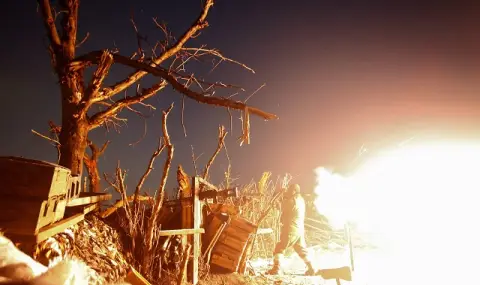"Ukraine Using US Weapons to Strike Inside Russia , will not end the war". This is written in an article for the Washington Post by Samuel Sharap, professor of political science at the Rand Research Institute and Jeremy Shapiro, director of research at the European Council on Foreign Policy.
The decision by the Biden administration to approve Ukraine's use of American weapons to attack targets on Russian soil is, as President Biden might say, a big deal. Ukrainians argue that this change will thwart the Kremlin's advance in the Kharkiv region and perhaps even turn the tide of the war. Russian officials and propagandists say this is a serious escalation and threaten to strike directly at the United States or its allies.
Both claims are likely to prove untenable. But this decision is nevertheless significant, albeit for another reason: it marks another turn in the spiral of " tooth for tooth“, which constantly increases the risks of a wider war without offering a way to end it.
This is not the first time that the United States, under pressure from Ukraine and its Western allies, has crossed a threshold previously considered too high. Previous decisions on HIMARS launchers, cluster bombs, long-range munitions, and the F-16 were also dictated by perceived Russian successes on the battlefield.
Strikes inside Russia with American weapons may delay military operations around Kharkiv, but will not change the situation. Russia's advance on Kharkiv has already stalled in the area of the city of Volchansk, which is less than 8 km from the Russian border. By striking supply lines inside Russia itself, the advance could be further delayed, but the Russians are likely to adapt as they have adapted to previous American actions. After all, US weapons are regularly used to strike Russian supply lines and command posts in occupied eastern Ukraine, yet Russia has consistently made gains there. And so the grueling war will continue.
Past evidence also suggests that Russia will not escalate dramatically just because the United States provides a new weapons system or eases restrictions on an existing one. Currently, Russia is relatively winning the war, so President Vladimir Putin is unlikely to risk provoking a direct conflict with the United States and its allies. Moscow may respond, but it will probably do so in an indirect or asymmetrical way, rather than firing a missile at a European capital next week.
The real problem with Biden's decision is that Washington once again made a major policy shift reactively -- in response to Russia's military actions, rather than as part of a broader strategy to end the war. The Russians will continue to push, and in three or six months the United States may find itself here again, under a similar Ukrainian and allied pressure campaign, tempted to cross the next threshold to try to reverse the negative trajectory. As Secretary of State Anthony Blinken put it, "we will continue to do what we have done so far, which is to adapt and adjust as necessary.
But adaptation and accommodation are not a strategy, and reactive escalation in the absence of a strategy is not a sound policy. Escalating US involvement in this conflict - or any conflict - must be guided by an idea of how to end the war. In this case, this would require proving that Ukrainian strikes on Russia using US systems were part of an integrated strategy to end the war on terms favorable to Ukraine and the US.
As the administration itself has repeatedly stated, that end will come at the negotiating table. In the negotiation process, coercive measures can be used as leverage. You impose war costs on your opponent in order to get them to do what you want, not just to counter their last maneuver.
But Ukraine and the West show no signs that they are ready to start negotiations with Russia. And imposing costs in the absence of a negotiation process makes further escalation inevitable. As Thomas Schelling, the guru of military coercion, noted: "If [our enemy's] pain were our greatest pleasure and our satisfaction his greatest misfortune, we would continue to injure and disappoint each other.".
This spiraling dynamic — of unrelenting Russian aggression and ever-increasing Western military support for Ukraine to counter Moscow's momentum — has been unfolding for almost two and a half years now. Without a negotiation process, it could continue for many more years. And one day, one side or the other may finally stumble over an actual red line, which could lead to exactly the kind of major escalation the Biden administration is trying to avoid.
Meanwhile, Ukraine will continue to suffer and the West's war spending will continue to rise. There must be a better way to manage the most significant military conflict in a generation.
US Escalation in Ukraine Needs a Plan
Russian officials and propagandists say this is a serious escalation and threaten to strike directly at the United States or its allies
Jun 8, 2024 13:35 414
